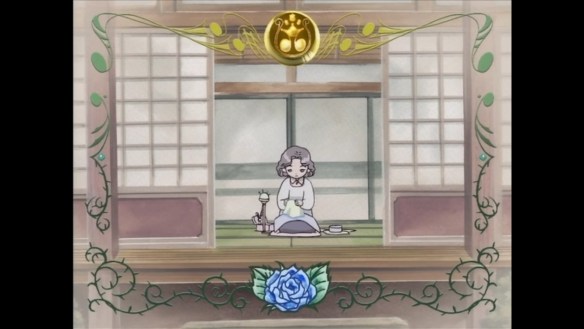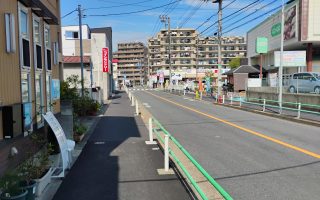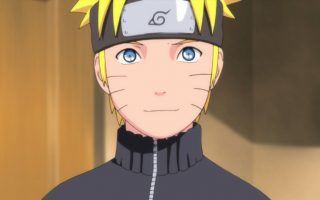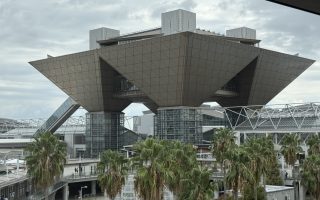Hello folks, and welcome back to Wrong Every Time. Today I’m delighted to be returning to Ojamajo Doremi Sharp, as we check in on the continuing fortunes of our increasingly competent ojamajos. Our last episode featured the welcome return of Aiko’s best friend Nobuko, who came ready to greet the fourth grade with a new adventure, “The Boy Who Ran.” Seeing all of Aiko’s friends add their own additions to the narrative was both inherently funny and also a satisfying riff on their individual personalities – even if they hadn’t inserted themselves as characters, it would have been easy enough to assign Hadzuki, Onpu, and Doremi to their respectively gothic, melodramatic, and steak-obsessed contributions.
Ojamajo Doremi’s classmate-focused episodes embody one of its greatest strengths: its dedication to furnishing its entire ensemble cast with distinctive, multifaceted, and evolving personalities, such that they feel like people we’re coming to know better all the time, rather than devices serving some specific dramatic purpose. With its remarkably thoughtful, generous narrative and marvelous production team, every episode of Doremi is a reminder of just how good anime can be, and I’m looking forward to whatever comes next. Let’s find out!
Episode 11
Our cold open appears to be introducing us to a new member of the class, a girl who wants a new dress for her knitted doll, and for herself as well. There also appears to be an older woman sewing. I wonder if this presumably handmade doll points to her family’s difficult financial circumstances
After the OP, this opening sequence is immediately contrasted against Hadzuki sewing in her own impressive home. Well, we just went through Onpu and Aiko episodes, so I suppose Hadzuki is up
Her mom then arrives home with a present: an incredibly ornate ballroom gown. Given the idle request presented in the episode’s cold open, it’s seeming likely that this episode’s drama will hinge on the contrast of family circumstances between Hadzuki and the initial girl
Another point to Ojamajo Doremi’s credit. The show is never afraid to dive into challenging topics, topics that allow the unfair realities of life to intrude on the ostensibly lighthearted adventures of our magical girls, and Doremi is far greater for it
Ignoring the topics that make people uncomfortable would make for a far less honest exploration of growing up – simply being children does not shield us from the realities of divorces, financial difficulties, or ailing pets, and being able to speak to children on these topics without being either condescending or confusing is one of the best ways to prepare them for experiencing these struggles in their own life, and assure them they are not alone
Excellent Hadzuki faces as she laments this preposterous dress, but she plays it cool with her mom. Apparently her father has a company party coming up, and she’ll be expected to attend
“Hadzuki Learns How To Dance!?” Oh man, an embarrassing dance training montage seems like a perfect Ojamajo flourish
Meanwhile, Majo Rika is treating herself to an entire plate of cookies. Where does that food even go
I like how Doremi’s hand just becomes a loosely drawn orb when she’s pissed off. Yoshihiko Umakoshi is a master of these sorts of playful exaggerations of form, and his guidance as character designer and animation director is a significant element of Doremi’s charm. It makes me sad that he’s spent the last decade working as character designer for My Hero Academia, an adaptation that fundamentally rejects all of the exaggerations of form that make Umakoshi’s work and animation more generally so fun and expressive
While Doremi distracts Rika, our other girls snag the cookies
Meanwhile, Hadzuki is knitting an ornate frilled bib for Hana
Oh shit, the second magical baby health exam is coming up. I’m sure that’ll make for another ridiculous episode
It seems Hadzuki doesn’t really like frilly clothes, but she wears them to make her mother happy. Another gesture towards the ways our parents’ expectations shape our own lives, as has been otherwise explored through Aiko’s dad and Onpu’s mother
I assume that’s actually what this story is leading towards at this point: the girl in the opening was Hadzuki’s mother, and her own family’s inability to afford fancy dresses likely informs her desire to make sure Hadzuki has so many nice articles of clothing. Our parents’ views of what their children desire will often be colored by their own unfulfilled childhood desires – of course, that very abundance in their children’s lives can then lead to those children rejecting their parents’ preferences. A natural friction that’s well worth exploring
Her mother’s definitely going overboard here, as she’s signed Hadzuki up for traditional Japanese dance classes starting tomorrow
We keep seeing Hadzuki’s great-grandmother listening in, the only one who presumably understands what’s happening here
“Is it something like this?” “That’s a festival dance. They’re completely different.” I’m with you, Doremi. I appreciate her thankless role as the frequent audience avatar, requesting the other characters explain whatever’s going on
“Just say no if you don’t wanna.” Aiko’s advice is well-intended, but clearly reflective of her very different relationship with her own father. Aiko fully understands her father’s fallibility, and at times treats him more like a brother than a parent, so she’s accustomed to loudly disagreeing with him
Onpu suggests helping her with their magic. Love how cavalier these girls are about using magic for the most inane problems
I like how they connote how Japanese this Japanese dance instructor is by having a Mount Fuji print on every wall
It’s an interesting lesson they’re pursuing here. Whereas most children’s shows are happy to cede to the wisdom of parents, Doremi frequently emphasizes how our parents are just people who’ve been around for a while longer than us, who will certainly know more than we do, but who are also bound by their own misunderstandings and personal obsessions. As such, Hadzuki needs to learn to stand up for herself, even to her own mother
Ooh, impressive pan backwards from Pop to Hadzuki here, employing three distinct layers of scenery to create an illusion of movement through depth. This show always goes above and beyond in creating a scene of physical space, even for incidental scene transitions like this
“Hana-chan clearly expresses what she doesn’t like.” Onpu throwing some vicious shade at Hadzuki
“Drop that teacher’s bag and make it bounce away!” So they decide to help Hadzuki by… inconveniencing the dance teacher so badly she misses her lesson. Our heroes, everyone
Now they’re fucking with the walk signal lights to slow her down again. This is not a long-term solution, girls!
Of course, this is all in keeping with Doremi’s usual MO – magic is nice, but it can’t replace the difficult conversations and acts of courage that actually define growing into your mature, confident self
But enough about that, here’s Aiko trapping the dance teacher in a labyrinth of infinite stairs
Hadzuki unsurprisingly feels terrible about so rudely mistreating the teacher, and even our other ojamajos realize they’ve gone a bit too far
“I think I should make you a new kimono!” These are the consequences of refusing to assert yourself, Hadzuki: your mom’s pursuing this misunderstanding even further, making it all the harder to eventually admit you don’t want to pursue dancing
Hadzuki ends up draped in a wide variety of fabrics, literally buried under her mother’s expectations
But her mother ultimately realizes the truth, and runs wailing out of the room. We can’t always rely on our parents to be as mature about our choices as we’d hope
Fortunately, Baaya’s here to explain what Hadzuki’s grandmother was like
Hadzuki’s mother never had the confidence to ask her own strict, money-conscious mother for the toys she wanted, so she’s of course trying to make sure Hadzuki has everything she could ask for
“She made very beautiful clothes for your mother’s doll out of scraps of cloth.” A fond legacy she clearly wants to pass on to her own child. Parents only have their own experience as children to their own parents to draw on, so they’ll of course make “mistakes” due to not immediately recognizing the distinct needs of their own children
“Your mother needed to suppress her own wants when she was little. She does not want you to do that yourself.” Yet in one of those awkward twists of expectations, she’s ended up forcing Hadzuki to suppress her own desires in order to make her mother happy
But through actually coming to understand her mother’s perspective, she’s able to see both her mother’s clear concern and her vulnerability. This doll becomes a point of connection between them, one generation’s secret desires being validated by the next
And Done
Excellent work, Hadzuki! It was extremely like her to not reject the traditional dance lessons even after all that effort, but I can understand her feelings. Those dance lessons aren’t just an imposition now, they are a point of connection with her mother – a link between their childhoods, as Hadzuki sees the joy in her mother’s eyes at having her secret dreams realized through her daughter. As in many of Doremi’s parent-focused episodes, Hadzuki learning her mother’s fallibility actually brought them closer together, and offered Hadzuki herself a chance to act mature for her mother’s sake, taking another step towards adulthood in the process.
This article was made possible by reader support. Thank you all for all that you do.




